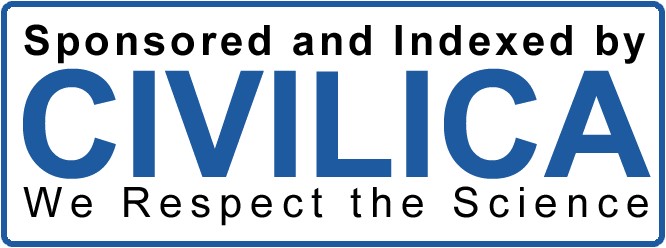Exploring the Process of Implementation of an Effective Virtual Counseling: A Phenomenological Study
Keywords:
Virtual counseling, data-driven theory, efficient virtual counseling process, phenomenology, documentary studyAbstract
Introduction and Aim: Today in compared to the past, there is more emphasis on virtual counseling, and accordingly, the present research was conducted with the aim of exploring the process of implementation of an efficient virtual counseling process.
Methodology: This research was applied in terms of purpose and descriptive from type of phenomenological in terms of implementation method. The population of the present research was counselors and clients of psychological services in the country, which according to the principle of theoretical saturation number of 14 people (7 counselors and 7 clients) were selected as samples using purposive sampling. The data collection tool was semi-structured and in-depth interviews with counselors and clients. To analyze the data was used the Colaizzi’s seven-step coding method in Atlas.ti software.
Findings: The results of this study showed that the process of implementation of an efficient virtual counseling process has 156 basic themes, 29 sub-themes, and 8 main themes, including the nature and definition of virtual counseling (18 basic themes and 4 sub-themes of virtual counseling process, differences in communication and treatment, challenges of experiencing virtual therapy, and benefits of virtual therapy over in-person), lack of body language (14 basic themes and 4 sub-themes of importance of tone and word choice, challenges of lack of nonverbal communication, alternative solutions for body language, and efficient communication through digital tools), remote access (18 basic themes and 3 sub-themes of access for people with geographical limitations, accessibility for special people, and accessibility for people with disabilities or special physical conditions), virtual space management (18 basic themes and 4 sub-themes of time management and virtual meetings, use of digital tools to manage meetings, technical challenges, and regulation of the virtual therapy space), privacy and security (20 basic themes and 4 sub-themes of data and personal information protection, ensuring privacy in contacts, trust to cyberspace, and educating clients about security), clarifying of expectations (22 basic themes and 4 sub-themes of explaining the virtual therapy process to clients, managing of treatment expectations, reasonable expectations of virtual therapy, and preparing clients for virtual therapy), using from digital tools (24 basic themes and 4 sub-themes of therapeutic software to track progress, voice and text messages, adapting to new technologies, and treatment progress charts), and teaching family communication skills (22 basic themes and 2 sub-themes of creating a supportive family environment and teaching positive parenting).
Conclusion: The results of this research indicated that efficient virtual counseling despite its advantages such as easy and convenient access, faces challenges such as technical problems and security concerns.
Downloads
Downloads
Published
Submitted
Revised
Accepted
Issue
Section
License
Copyright (c) 1404 مهتا محمدکاشی (نویسنده); یاسر مدنی; کیوان صالحی (نویسنده)

This work is licensed under a Creative Commons Attribution-NonCommercial 4.0 International License.






